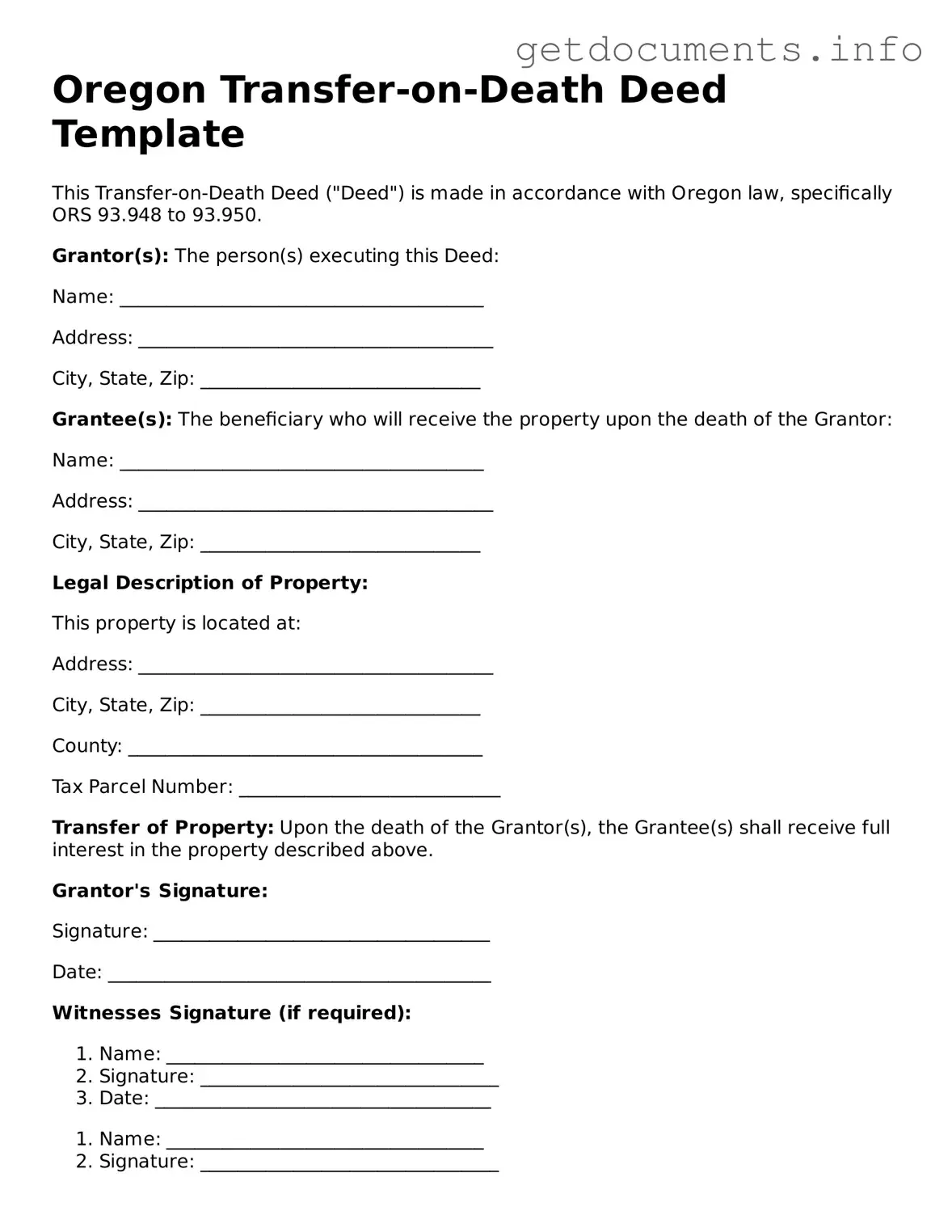Free Transfer-on-Death Deed Template for Oregon
The Oregon Transfer-on-Death Deed is a legal document that allows property owners to transfer their real estate to beneficiaries upon their death, avoiding the probate process. This form simplifies the transfer of property, ensuring that loved ones receive their inheritance without unnecessary delays or costs. To learn more and fill out the form, click the button below.
Access Transfer-on-Death Deed Editor

Free Transfer-on-Death Deed Template for Oregon
Access Transfer-on-Death Deed Editor
Got places to be? Complete the form fast
Fill out Transfer-on-Death Deed online and avoid printing or scanning.
Access Transfer-on-Death Deed Editor
or
⇩ PDF File
